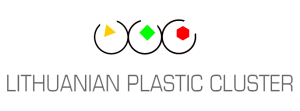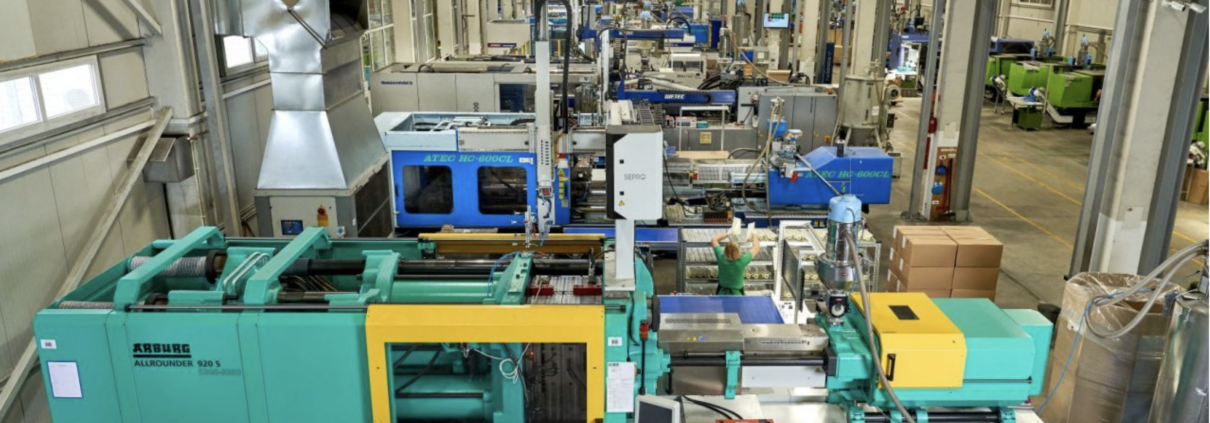Investments, Exports, and New International Partnerships
In recent years, Lithuania’s industrial sector has faced various challenges – from slowing demand in some markets to rising costs and increasing global competition. Nevertheless, many manufacturing companies remain active and continue to invest strategically in operational efficiency and the search for new export opportunities. The first three quarters of 2025 have shown that, despite overall market moderation, some manufacturers have managed to maintain steady growth by expanding international partnerships, finding new suppliers within the European Union, and strengthening their positions in existing export markets. This demonstrates that even under more challenging economic conditions, Lithuanian industry can adapt and maintain a sustainable growth trajectory.
‘Pack Klaipėda’ Continues Rapid Expansion and Strengthens Its Position in the International Packaging Market
UAB Pack Klaipėda, one of the largest manufacturers of XPS and XPP trays in the Baltic region, achieved an impressive result during the first nine months of 2025 – the company’s turnover was 30% higher than in the same period of 2024.
This growth was driven by new production lines introduced last year, which allowed the company to attract new clients and establish itself in new European markets. Pack Klaipėda specializes in the production of sustainable packaging for the food industry – its products are used in Food to Go, Ready Meals, fresh meat, and other segments. The packaging is designed to ensure food safety, longer shelf life, and reduced food waste.
Over 90% of the company’s production is exported to various European countries. After attending the international trade fairs Fachpack and Anuga this year, the company is negotiating with new potential clients, creating a solid foundation for further growth.
By the end of the year, Pack Klaipėda plans to install another modern production line, which in 2026 will increase production capacity and sales by an additional 15–20%.
This year, the company also installed a solar power plant on the roof of its production building, strengthening its energy independence. Moreover, it is preparing plans for the implementation of robotization and artificial intelligence (AI) solutions in 2026 – aimed at optimizing labor costs, improving ergonomic conditions, and further enhancing quality standards.
In 2025, Pack Klaipėda successfully obtained ISO 22000 and ISO 45000 certifications, opening new export opportunities and boosting its competitiveness on the international stage.
‘Hoda’: Order Flow and Advanced Technologies
UAB Hoda “cautiously” shares its good results for the first three quarters of 2025, which have been successful. Orders remain steady, and cooperation with some clients has lasted for around 30 years.
According to Martynas Meironas, the Project Manager, summer was particularly intense: the company installed special press, the only one of their kind in the entire Baltic region – with a clamping force of 2,100 tons. Additionally, a robotic line for automated part removal was introduced, replacing manual work. This significantly increased efficiency and reduced the amount of physical labor.
Exports account for about 70% of total production, and the company plans to maintain this pace until the end of the year. Hoda is also implementing sustainability principles by striving to use recyclable raw materials in production processes. Although this is not technically possible for all products, the company seeks innovative ways to reduce environmental impact, optimize manufacturing, and simultaneously expand export volumes.
‘Doloop’: Challenges in the PET Preform Market but Growth in the Film Segment
UAB Putoksnis, operating under the brand name Doloop, describes this year as dynamic but overall stable. The first quarter was particularly strong, although turnover slightly declined in the second and third quarters. Still, when comparing the first three quarters of 2024 and 2025, the overall results remain similar.
According to S Mindaugas Morkūnas, the Sales Director, demand for PET preforms has not been high this year, but PET film production is growing and compensating for this decline. Additionally, PET bottle production, although a smaller part of total output, exceeded planned results by 5%.
This year, the company installed a new PET film production line, investing €2.5 million. The company is now actively seeking new clients for this line by participating in trade fairs, conferences, and direct meetings with potential customers.
Doloop primarily exports to Germany, Scandinavia, Poland, and the Baltic States, with only about 10% of total production remaining in Lithuania.
Lithuanian Manufacturing Sector – A Model of Innovation and Resilience
The examples of Pack Klaipėda, Hoda, and Doloop demonstrate that Lithuanian industrial companies are not only able to maintain stability but also confidently invest in advanced technologies and sustainability. Robotization, artificial intelligence solutions, green energy, and high quality standards form the foundation of these companies’ strategies, ensuring their competitiveness in European markets.

